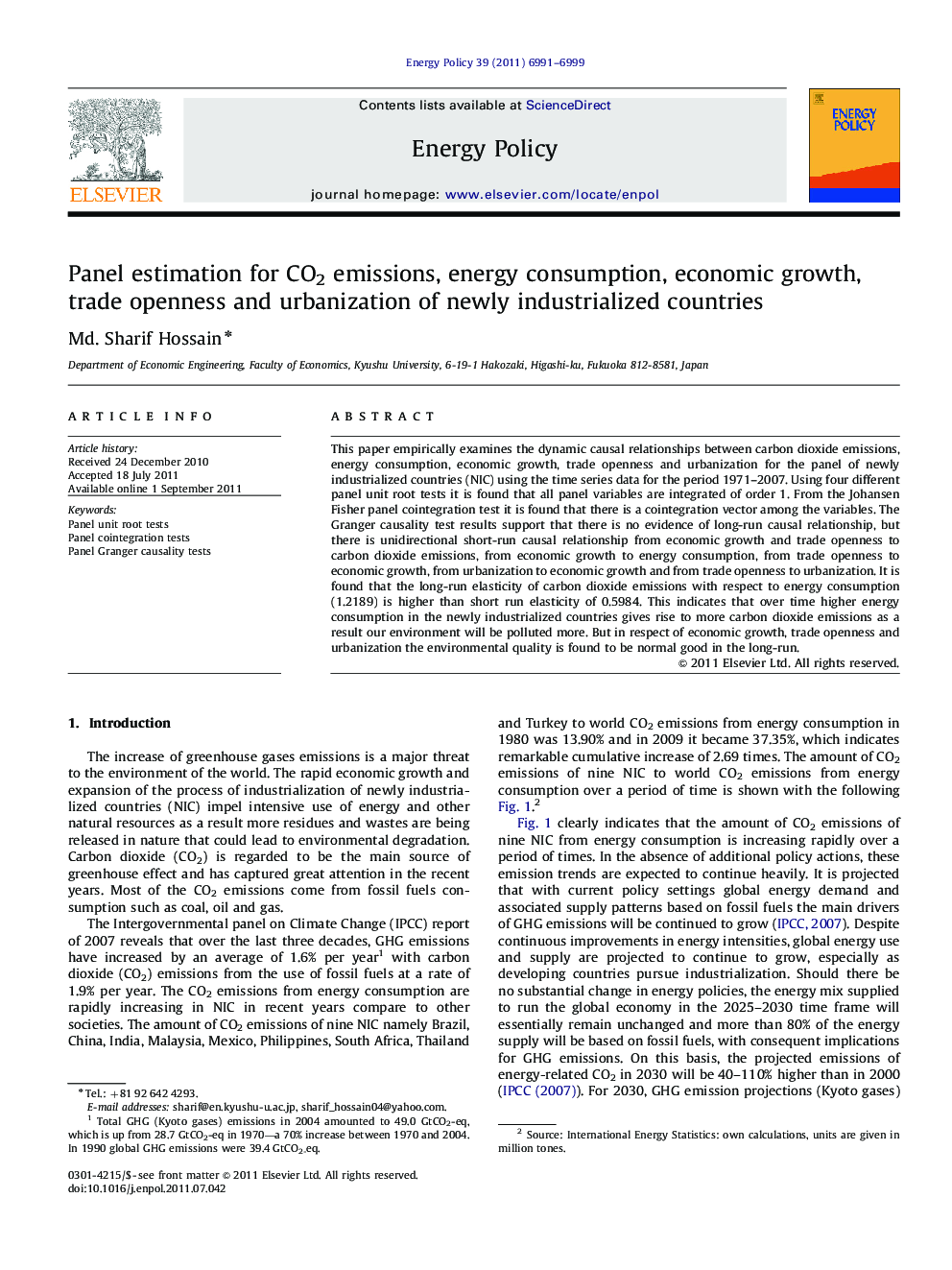| Article ID | Journal | Published Year | Pages | File Type |
|---|---|---|---|---|
| 993371 | Energy Policy | 2011 | 9 Pages |
This paper empirically examines the dynamic causal relationships between carbon dioxide emissions, energy consumption, economic growth, trade openness and urbanization for the panel of newly industrialized countries (NIC) using the time series data for the period 1971–2007. Using four different panel unit root tests it is found that all panel variables are integrated of order 1. From the Johansen Fisher panel cointegration test it is found that there is a cointegration vector among the variables. The Granger causality test results support that there is no evidence of long-run causal relationship, but there is unidirectional short-run causal relationship from economic growth and trade openness to carbon dioxide emissions, from economic growth to energy consumption, from trade openness to economic growth, from urbanization to economic growth and from trade openness to urbanization. It is found that the long-run elasticity of carbon dioxide emissions with respect to energy consumption (1.2189) is higher than short run elasticity of 0.5984. This indicates that over time higher energy consumption in the newly industrialized countries gives rise to more carbon dioxide emissions as a result our environment will be polluted more. But in respect of economic growth, trade openness and urbanization the environmental quality is found to be normal good in the long-run.
► Dynamic causal relationships are conducted for different panel variables of NIC. ► Test results support only existence of unidirectional short-run causal relationships. ► Environment will be polluted more due to energy consumption in the long-run. ► But environmental quality is found to be normally good in respect of other variables. ► NIC should use solar energy as the substitute of oil to control CO2 emissions.
